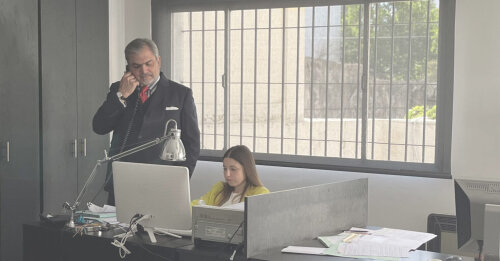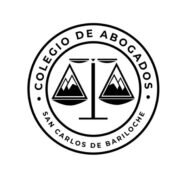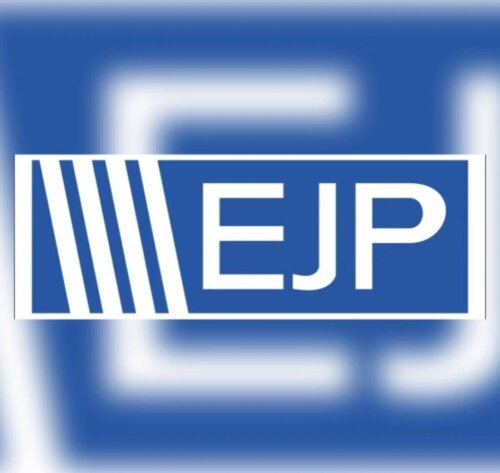Best Collaborative Law Lawyers in Argentina
Share your needs with us, get contacted by law firms.
Free. Takes 2 min.
Free Guide to Hiring a Family Lawyer
Or refine your search by selecting a city:
List of the best lawyers in Argentina
About Collaborative Law in Argentina
Collaborative law is a method of dispute resolution in Argentina that allows parties to work together in a cooperative and respectful manner to resolve their legal issues. This approach focuses on finding mutually beneficial solutions outside of the courtroom, with the help of specially trained professionals, such as lawyers, mediators, and financial advisors.
Why You May Need a Lawyer
You may need a lawyer in the field of Collaborative Law in Argentina if you are facing a legal issue that requires negotiation and conflict resolution, such as divorce, family disputes, or business disagreements. A lawyer can provide guidance, representation, and support throughout the collaborative process, ensuring that your rights are protected and your interests are upheld.
Local Laws Overview
In Argentina, Collaborative Law is recognized and regulated by specific laws and regulations that govern the process of collaborative negotiations, agreements, and settlements. It's essential to familiarize yourself with the legal framework surrounding collaborative law in Argentina to ensure a smooth and successful resolution of your legal matter.
Frequently Asked Questions
What is the role of a collaborative lawyer in Argentina?
A collaborative lawyer in Argentina acts as a legal advisor and advocate for their client during collaborative negotiations. They help clients understand their rights, options, and responsibilities, ensuring that their interests are protected throughout the collaborative process.
How does collaborative law differ from traditional litigation?
Collaborative law in Argentina differs from traditional litigation in that it promotes a cooperative and non-adversarial approach to resolving legal disputes. Parties work together to reach mutually acceptable solutions, rather than relying on a judge to make decisions for them.
Can collaborative law be used for all types of legal issues in Argentina?
Collaborative law in Argentina is commonly used for family law matters, such as divorce, child custody, and spousal support, but it can also be applied to other areas of law, such as business disputes, probate, and real estate.
Is collaborative law legally binding in Argentina?
Collaborative law agreements in Argentina are legally binding once signed by all parties involved. This means that the terms of the agreement are enforceable in court, similar to traditional legal contracts.
How long does the collaborative law process typically take in Argentina?
The length of the collaborative law process in Argentina varies depending on the complexity of the legal issue, the number of parties involved, and the willingness of all parties to cooperate and negotiate in good faith. On average, collaborative law cases can be resolved in a matter of months.
What are the advantages of choosing collaborative law in Argentina?
Some advantages of choosing collaborative law in Argentina include faster resolution of legal issues, cost savings compared to litigation, greater control over the outcome, and the ability to maintain privacy and confidentiality throughout the process.
What happens if parties cannot reach an agreement through collaborative law in Argentina?
If parties are unable to reach an agreement through collaborative law in Argentina, they may choose to pursue traditional litigation or alternative dispute resolution methods, such as mediation or arbitration, to resolve their legal issues.
Are collaborative law agreements in Argentina legally enforceable?
Yes, collaborative law agreements in Argentina are legally enforceable once signed by all parties involved. This means that the terms of the agreement can be enforced in court if necessary.
How do I find a collaborative lawyer in Argentina?
You can find a collaborative lawyer in Argentina by contacting local bar associations, legal directories, or collaborative law organizations in your area. It's important to choose a lawyer who has experience and training in collaborative law to ensure a successful resolution of your legal matter.
What is the cost of hiring a collaborative lawyer in Argentina?
The cost of hiring a collaborative lawyer in Argentina varies depending on the complexity of the legal issue, the experience and reputation of the lawyer, and the location of their practice. It's important to discuss fees and payment arrangements with your lawyer before engaging their services.
Additional Resources
If you're in need of legal advice or assistance in the field of Collaborative Law in Argentina, you may find the following resources helpful:
- Argentine Collaborative Law Association (ACLA)
- National Institute of Collaborative Law (NICL)
- Local bar associations and legal aid organizations
Next Steps
If you require legal assistance in Collaborative Law in Argentina, the next step is to reach out to a qualified and experienced collaborative lawyer for a consultation. They can assess your situation, explain your rights and options, and help you navigate the collaborative process effectively. Remember to choose a lawyer who is knowledgeable about collaborative law and committed to helping you achieve a positive resolution to your legal matter.
Lawzana helps you find the best lawyers and law firms in Argentina through a curated and pre-screened list of qualified legal professionals. Our platform offers rankings and detailed profiles of attorneys and law firms, allowing you to compare based on practice areas, including Collaborative Law, experience, and client feedback.
Each profile includes a description of the firm's areas of practice, client reviews, team members and partners, year of establishment, spoken languages, office locations, contact information, social media presence, and any published articles or resources. Most firms on our platform speak English and are experienced in both local and international legal matters.
Get a quote from top-rated law firms in Argentina — quickly, securely, and without unnecessary hassle.
Disclaimer:
The information provided on this page is for general informational purposes only and does not constitute legal advice. While we strive to ensure the accuracy and relevance of the content, legal information may change over time, and interpretations of the law can vary. You should always consult with a qualified legal professional for advice specific to your situation.
We disclaim all liability for actions taken or not taken based on the content of this page. If you believe any information is incorrect or outdated, please contact us, and we will review and update it where appropriate.
Browse collaborative law law firms by city in Argentina
Refine your search by selecting a city.
















